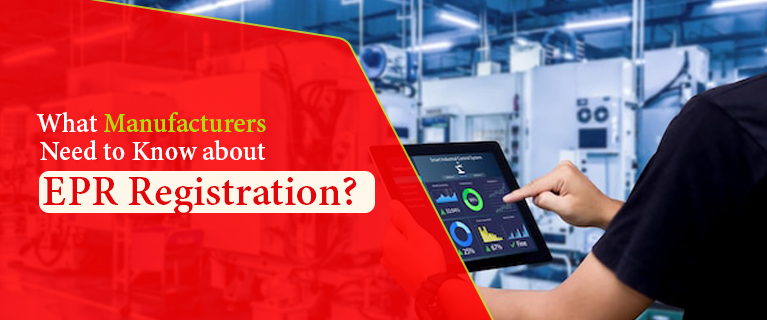Best EPR Registration Consultants In The Industry
Extended Producer Responsibility (EPR) is a pivotal concept in environmental sustainability and waste management. It places the responsibility for managing products, especially post-consumer waste, on the producers or manufacturers. EPR programs are crucial in reducing the environmental impact of products throughout their lifecycle. To participate in these programs and fulfill legal requirements, businesses often seek the guidance of EPR registration consultants. In this comprehensive guide, we'll explore the significance of EPR, the eligibility criteria, the registration process, and unveil the best EPR registration consultants in the industry.
Understanding Extended Producer Responsibility (EPR) :
EPR, or Extended Producer Responsibility, is an environmental policy approach where producers bear the responsibility for their products' environmental impact throughout their lifecycle. This includes the collection, recycling, and safe disposal of products and packaging after consumers are done with them.
The Environmental Challenge :
EPR Registration aims to address the environmental challenges posed by products and packaging materials, especially those that are difficult to recycle or dispose of properly. It encourages producers to design eco-friendly products, reduce waste generation, and actively participate in recycling efforts.
The Legal Framework :
EPR regulations and requirements vary by country and region. Producers must adhere to the specific EPR laws and regulations applicable in their area of operation.
Read Also This - The Advantages of Hiring EPR ConsultantsEligibility for EPR Registration :
1. Producer Responsibility
To be eligible for EPR registration, a business must be a producer or manufacturer of products that fall under the scope of EPR regulations. Producers may include manufacturers, importers, and brand owners.
2. Product Scope
Eligibility often depends on the type of products a business produces. Products commonly covered by EPR regulations include electronics, packaging materials, batteries, and certain hazardous products.
3. Geographic Scope
EPR programs are implemented at different levels, including national, state, or regional levels. Eligibility may depend on the geographical location of a business's operations.
The EPR Registration Process :
1. Preparing Documentation
Businesses seeking EPR registration must prepare comprehensive documentation, including product details, waste management plans, and compliance reports.
2. Regulatory Research
Detailed research into the specific EPR regulations governing the industry and region is essential.
3. Engagement with Regulatory Authorities
Proactive engagement with regulatory authorities is often necessary. This includes submitting applications, attending hearings, and participating in stakeholder consultations.
4. Implementation of Waste Management Plans
Businesses must implement effective waste management plans, which often involve setting up collection systems, recycling infrastructure, and compliance reporting mechanisms.
5. Periodic Auditing
Regular audits are typically required to ensure ongoing compliance with EPR regulations. Audits help identify areas for improvement and demonstrate a commitment to environmental responsibility.
Top EPR Registration Consultants in the Industry :
Now that we've explored the essentials of EPR, let's read about one of the leading EPR registration consultants in the industry, LegalRaasta. Our experts can provide expert guidance and support throughout the registration process. We offer invaluable expertise, helping businesses develop sustainable waste management strategies, navigate regulatory complexities, and demonstrate their commitment to environmental responsibility. By choosing the right consultant, one can not only fulfill their legal obligations but also contribute to a more sustainable and eco-friendly future.
Conclusion :
Extended Producer Responsibility (EPR) Registration is an integral component of environmental sustainability and responsible business practices. Businesses must understand the eligibility criteria and follow a structured registration process to comply with EPR regulations. Seeking guidance from EPR registration consultants can significantly ease this process and ensure full compliance.




Comments
Post a Comment